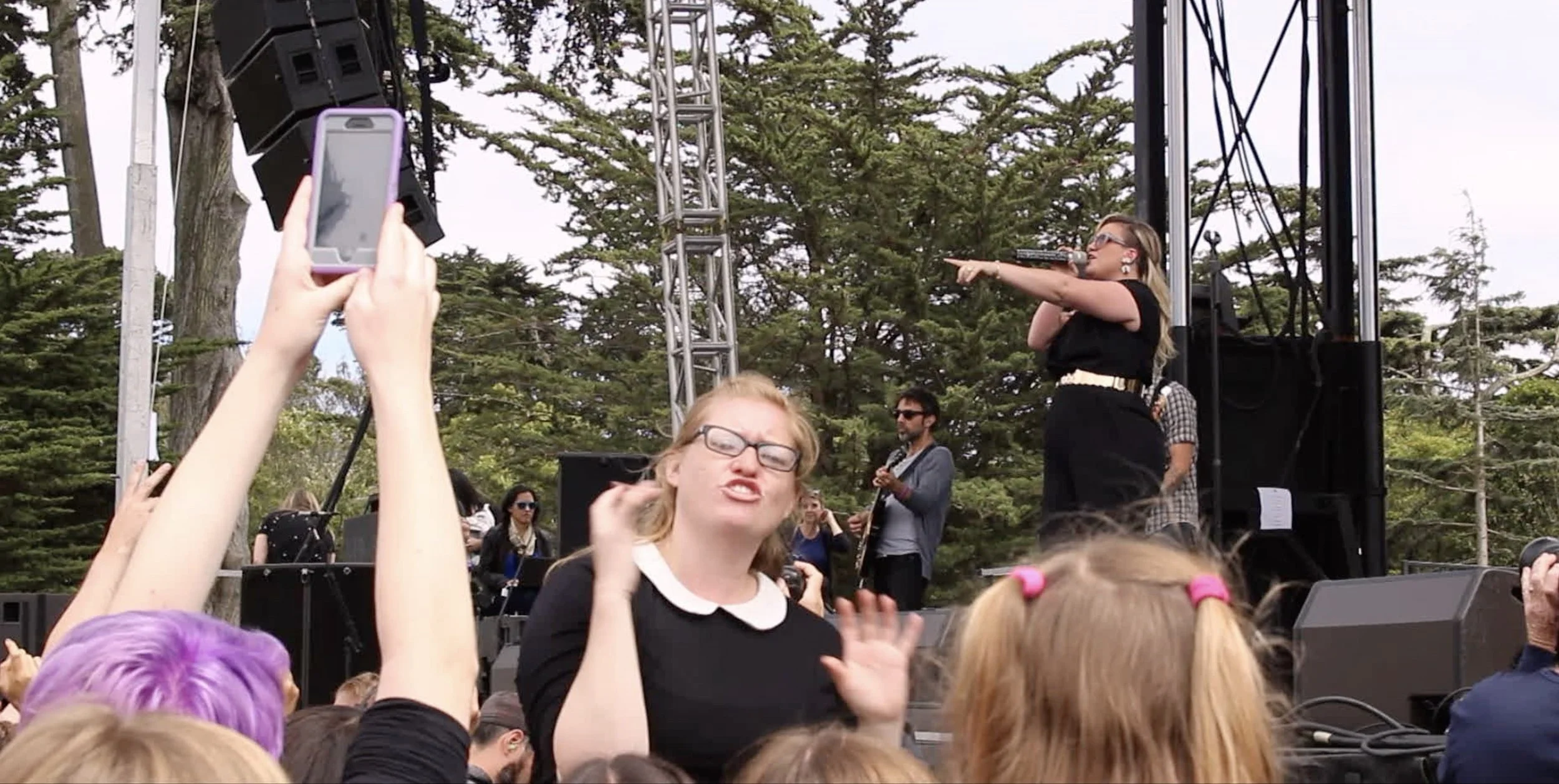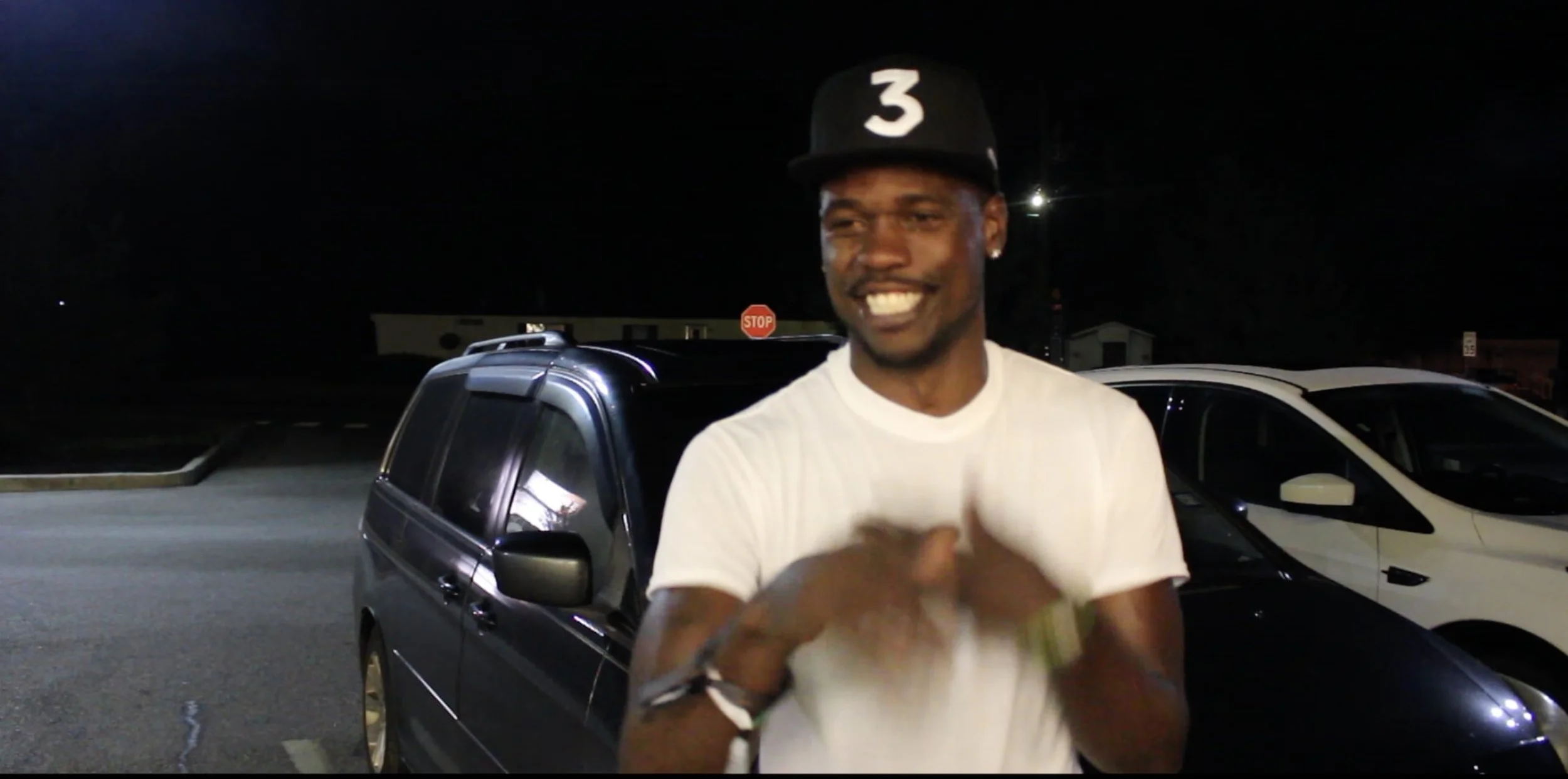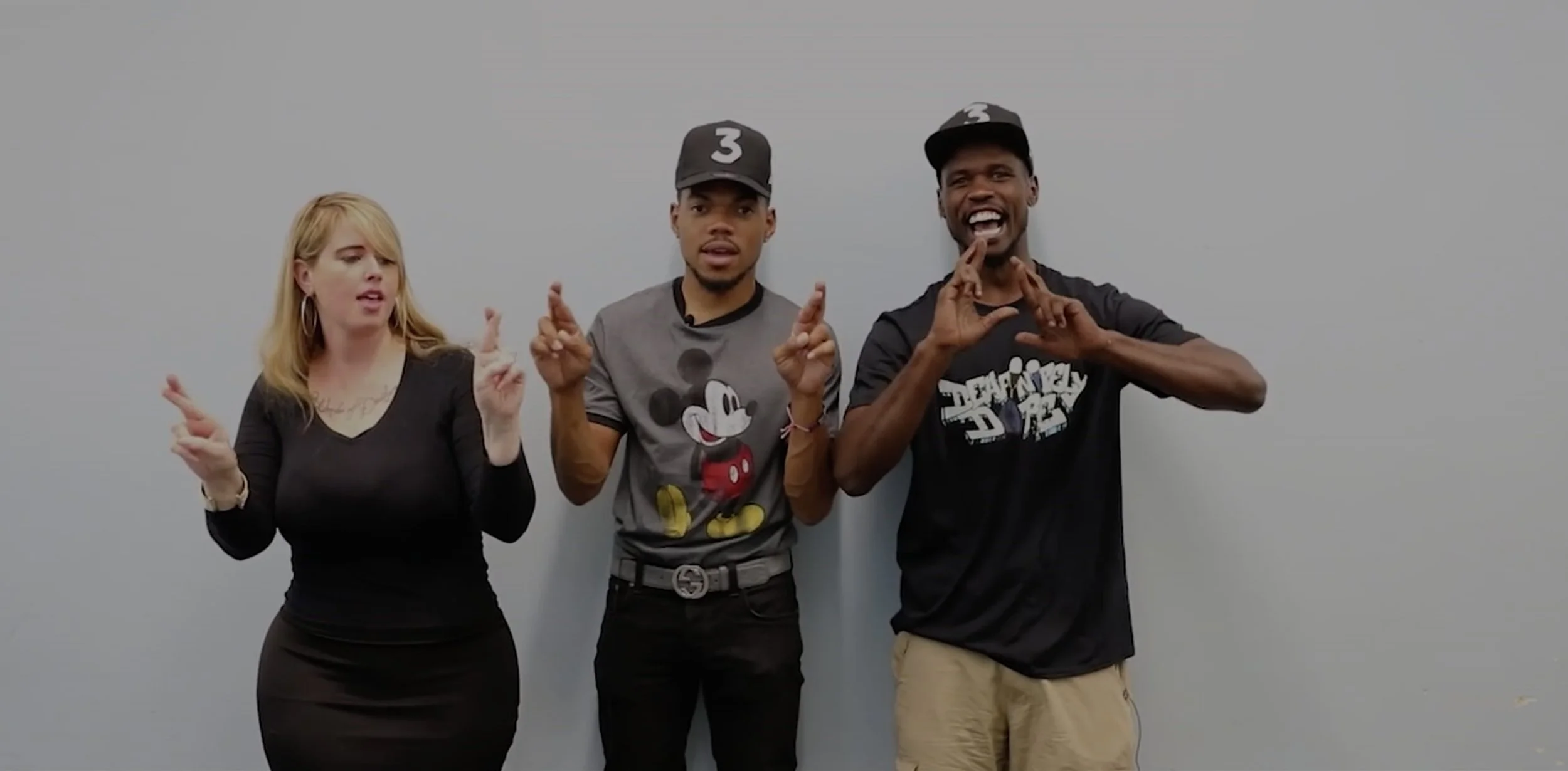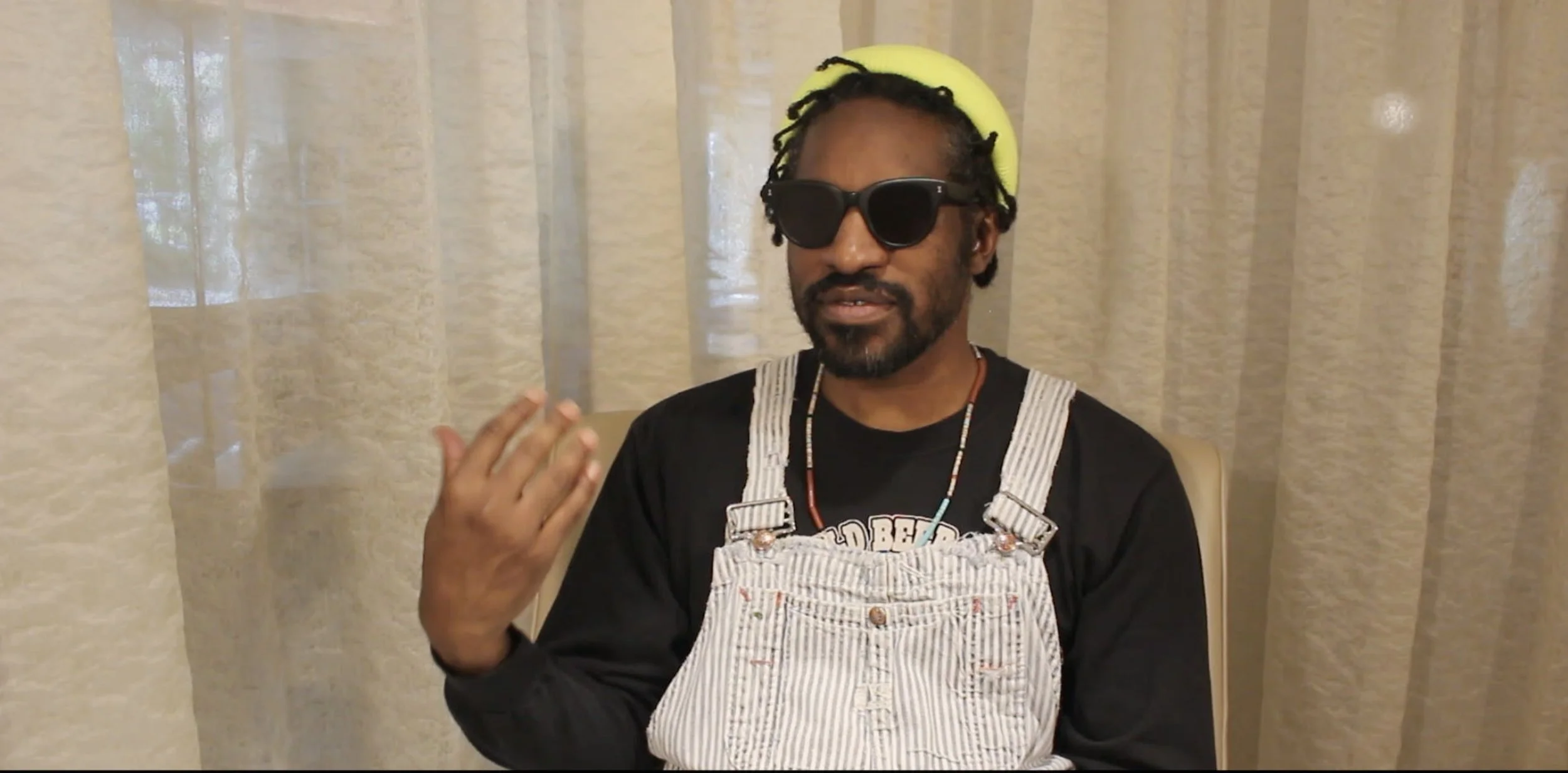Slamdance 2023: Sign The Show: Working Toward A More Inclusive World
Source: Strong Brew Productions
I’ve been a social justice advocate most of my life, doing all I can to push for radical progression and undo the legacies of toxic power and privilege. As a critic, I have continued as an advocate for underserved artists, highlighting mostly their work as opposed to mainstream, where the power imbalance is horrifically skewed.
I have been invited to the Sundance Film Festival the past 5 years in a row. My first invite came in 2019 and I was thrilled. As a person who lives with disabilities I worried about access to the Festival because I am unable to stand in lines for a prolonged period of time and was also concerned that most people who go there, get around town in busses or by walking.
There are so many reasons why neither of those wouldn’t work for me, so I reached out to Sundance’s disability team about it. I asked if there was special transportation for people with disabilities who were attending and, whether or not they could accommodate me, ongoing, in the theaters, to be seated inside early, so I wouldn’t have to stand in the long lines.
I was disappointed to find out that I was more or less on my own. Their idea of accommodation was “maybe” being able to set a chair outside the theaters for me, and they had no special transportation for those with disabilities, stating that most people use the bus (umm, big stairs?). They stated that there was also just a couple of placard holding handicapped spots throughout the whole town and that no lots were reserved or designated for people with physical disabilities.
Source: Sundance Film Festival
Needless to say, I didn’t end up going. When COVID hit, the fest was continued online so I was able to attend those. I thought it proved more progressive, for all sorts of people who couldn’t access the fest, for whatever reason, in the past.
Fast forward to Sundance 2023. Not only was there less online availability, I came across this article , regarding more accessibility issues at the 2023 Sundance Film Festival, this time for famous jurors who were deaf/hard of hearing. I was not surprised but was angry that they still weren’t fixing these problems.
I posted about it on Instagram and was made aware that, ironically, over at their sister festival, Slamdance, was playing an absolute gem of a documentary about the deaf and hard of hearing community not being able to access their favorite live concerts, comedy shows and plays.
Sign The Show, directed by Cat Brewer, is a timely, all encompassing documentary bringing into focus the difficulties that the deaf and hard of hearing community have while trying to attend live events.
Answering the call
Cat Brewer
Cat Brewer was a college educator when she went to enjoy a music concert several years ago. She noticed that at this concert there was an interpreter signing the concert. Like most hearing individuals, myself included, she was unaware that the deaf community wanted access to live concerts and shows across the board, at all kinds of venues.
Brewer began investigating, talking to interpreters and reaching out to the deaf community inquiring about this subject and that planted the seed for the making of this film. She travelled all across the nation, interviewing interpreters, musical celebrities and deaf advocate groups.
The film references the American Disabilities Act (ADA), signed into law in 1991, quoting: “Any place of public accommodation is required to provide sign language interpreters or other effective means of communication for hard of hearing individuals.”
What the ADA doesn’t mention are the myriad of loopholes and complications that a given venue may have due for a myriad of reasons. For example, though a venue must fulfill the need for an interpreter, the ADA allows venues the option to pick one night of the show when an interpreter is available. So what if you’re not available that particular night? It’s not the venue’s headache.
Concert goers also have the option to call a venue ahead of time to secure an interpreter and be seated in the hard of hearing section, but there is no guarantee that the venue will actually have an interpreter when needed, nor be able to seat someone where they can actually see the interpreter.
Far too many venues don’t have accommodations like these and many others, on an ongoing basis, just as part of their business.
A Rallying cry
Source: Strong Brew Productions
Brewer speaks to several organizations and interpreters actively working to change this. Matt Maxey, founder of the organization DEAFinitely Dope, advocate for the deaf and hard of hearing community, has worked in many venues and concerts. signing hip-hop shows. He was discovered by Chance the Rapper while signing a show and Chance asked him to travel with the crew and sign the rest of his shows on his tour.
In 2006, the non-profit organization Deaf West Theatre, put up the Broadway musical, Spring Awakening, performing simultaneously in American Sign Language (ASL) and English, using a deaf and hearing cast. It was the first of its kind. Hearing performers had to learn ASL and learn about the experiences of the deaf and hard of hearing community from the deaf actors.
For the past ten years the Firefly Music Festival has been gathering incredible names in musical entertainment while accommodating people of all kinds, embracing the disability community. They pride themselves in being an all inclusive and safe venue for everyone. Why can’t every place do this?
The film dabbles in all the different ways that sign language isn’t just a modem of communication, but an entire language and form of bodily expression for the deaf. It has its own jargon, slang and impact that speaks to a distinctive group of people, whom otherwise would be shut out.
Every interpreter also specializes in different aspects of life including business, medical, education and performance art, so interpreters are not a “one size fits all” service. There are detailed components to the different types of signing including “deaf jokes”, innuendos and puns, and, what’s more, deaf people communicate and associate in ways that are different even to each other.
Source: Strong Brew Productions
In all honesty…
Sign The Show is a genuine accomplishment and a necessity for all people to see. There is so much to learn from it.
Brewer creates her freshman film with abundant heart and meticulous singularity on a subject that, until now, hasn’t had a spotlight. The message is one of full inclusion and it makes us aware that the way hearing people experience life and music, isn’t the only or best way to experience it.
This film shows that there are so many different ways to sense things in the world, and, if we could just stay open, that could enrich and enhance how we experience those things already.
Brewer’s prospective succeeds in a “ready to listen and learn” dynamic, making her subjects the priority, and allowing them to communicate without intrusion. The flow is smooth yet impactful without hitting the audience over the head with any biased agendas.
In this way, she is able to connect us with multiple, diverse people and entertainment genres in a succinct, easy to digest and non-judgmental way. This sense of ease creates comfort, allowing for the audience to really hear the subjects, and take in a lot of information that leaves you feeling inspired, not drained.
Andre 3000. Source: Strong Brew Productions
In documentaries, this is no simple task. Brewer works in an authentically optimistic, simplistic and approachable way to introduce the subject to those who are not familiar with it.
No one should have to go through what so many people do for access specific to their needs and to feel included. Ableism still runs rampant all over the world and it’s going to take more than defective legislation to change that.
Most of the time, even I don’t get screeners of films with closed captioning for review. How can deaf film critics give their important and unique perspectives on films without them?
It’s paying attention to those kinds of details in everyday life that can make an astronomical difference. Hearing the voices and hearts of those with disabilities are vital to our connection to each other as humans, and to the expansion of our knowledge and growth.
Although “othering” people is something that comes easily to humans, it doesn’t mean that these common fears and misconceptions cannot be challenged and laid to rest.
It’s passionate people like Brewer and those in this film, who answer their call when it comes, and bring a myriad of lived experiences to our attention. They beckon us towards progression and open our eyes to the beauty of uniqueness that is all around us.
The only question that remains is, will you be ready when your call comes?





